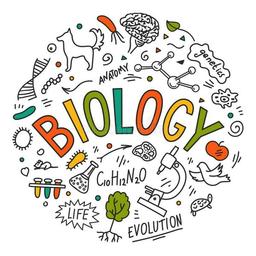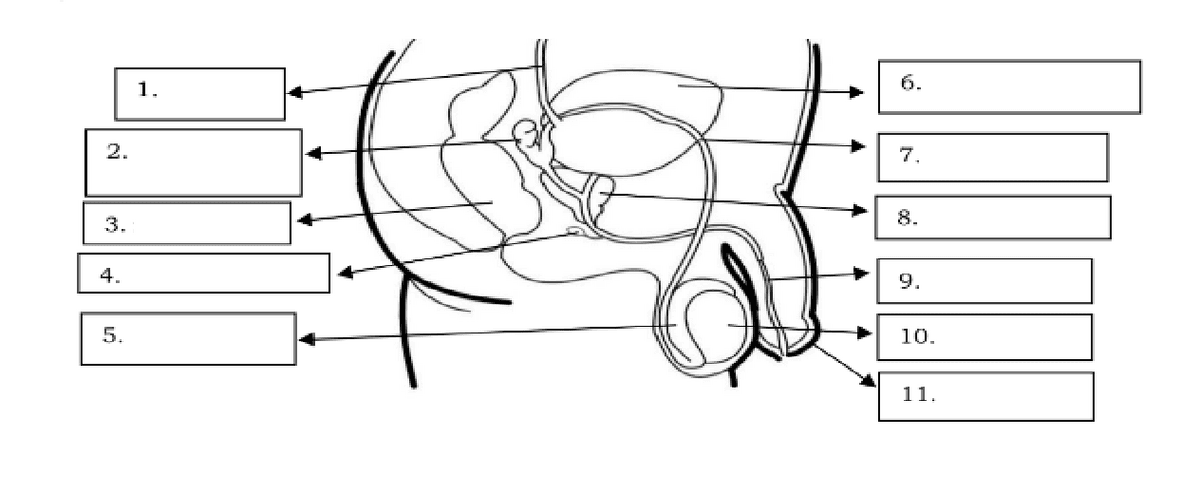
Q3 Science Practice Quiz
Quiz by Doodlethorn
Feel free to use or edit a copy
includes Teacher and Student dashboards
Measure skillsfrom any curriculum
Tag the questions with any skills you have. Your dashboard will track each student's mastery of each skill.
- edit the questions
- save a copy for later
- start a class game
- automatically assign follow-up activities based on students’ scores
- assign as homework
- share a link with colleagues
- print as a bubble sheet
- Q1
Identify the body parts from 1 to 6.
Users link answersLinking30s - Q2
Identify the body parts from 7 to 11.
Users link answersLinking30s - Q3
What path does the sperm cell take leaving the male body?
Testis -> Epididymis -> Vas Deferens -> Urethra
Testis -> Vas Deferens -> Epididymis -> Urethra
Scrotum -> Vas Deferens -> Epididymis -> Urethra
Testis -> Vas Deferens -> Urethra -> Penis
30s - Q4
The 3 most important glands in the male reproductive system are the pituitary gland, prostate gland, and the bulbourethral gland.
falsetrueTrue or False30s - Q5
________ is the male sex hormone responsible for the production on sperm and the development of the males' secondary sex characteristics. _______ on the other hand, is the female sex hormone that prepares the body for possible pregnancy.
Testosterone; Estrogen
Testosterone; Inhibin
Sperm; Ovum
Testosterone; Progesterone
30s - Q6
Housed within the seminiferous tubules are 3 important types of cells. Which one is located between and outside the lining of said seminiferous tubules?
Leydig cells
Primary Spermatocytes
Sertoli cells
Prokaryotic cells
30s - Q7
_________ stimulates the pituitary gland to produce more FSH while the _________ signals the pituitary gland to stop producing FSH.
Users re-arrange answers into correct orderJumble30s - Q8
In what part of the female reproductive system must a sperm cell and an egg cell meet for normal fertilization to take place?
Vagina
Uterus
Fallopian Tube
Ovary
30s - Q9
The hormone the hypothalamus produces.
FSH
Androgen-binding protein
GnRH
LH
30s - Q10
(ANSWER MUST BE IN SMALL LETTERS.)
Well, what does GnRH stand for?
Users enter free textType an Answer30s - Q11
It stimulates the follicle cells to grow and mature, inducing the follicle to break open.
Follicle Stimulating Hormone
Estrogen
Luteinizing Hormone
Progesterone
30s - Q12
How many days are there in an average menstrual cycle?
7
14
28
35
30s - Q13
This phase happens on days 6-14, and thickens the endometrial lining in preparation for the implantation of a fertilized ovum.
Proliferative phase
Menstrual phase
Secretory phase
Excretory phase
30s - Q14
Where is luteinizing hormone secreted from?
Posterior pituitary gland
Anterior pituitary gland
Posterior hypothalamus gland
Anterior hypothalamus gland
30s - Q15
Which statement is true about menstruation?
During menstruation, only the functional layer of the endometrium is shed, with the basal layer remaining intact.
In a normal 28-day menstrual cycle you would expect menstruation to last approximately 3-5 days.
The absence of menstruation always indicates an active pregnancy.
During menstruation, the entire endometrium is shed.
30s
